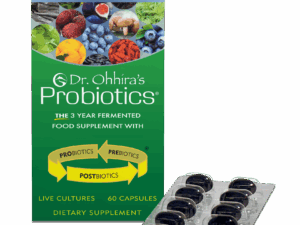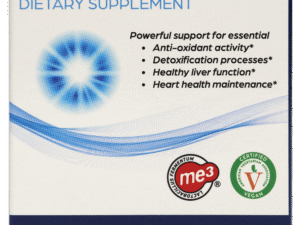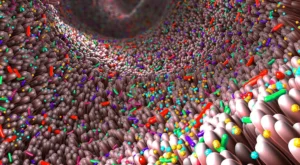Apr 19, 2011
Suzy Cohen, R.Ph.

This article is the longer, extended version of my syndicated column printed in April 2011
Dear Pharmacist,
I have been experiencing what my cardiologist calls “benign” arrhythmias for 2 years. They come and go, and I am unable to link them to any activities, foods or medicines. We’ve tried digoxin and beta blockers, which didn’t work. He says he can fix them with ablation and a pacemaker or just leave them alone for now. Sometimes they make me lightheaded and I get frightened. Do you think I should do the procedure? –S.C., Boulder, Colorado
Answer: I feel a second opinion is in order, perhaps you need to see an “electrophysiologist” which is a a cardiologist who specializes in electrical disturbances of the heart, or a neurologist to see if these are related to your vagus nerve or some other aberrant nerve problem. I insist that you figure out WHY you have the arrhythmia. They may be “benign” in the sense that they haven’t caused cardiac arrest, but they’re not benign when it comes to quality of life.
The standard of care in America includes the two procedures he refers to, ablation which is sort of like ‘burning’ one of the nodes in your heart, and installation of a pacemaker which forces your heart to beat in rhythm. For sure, some people benefit from these procedures, but they do not improve mortality rates for everyone. Personally, I wish that testing RBC magnesium was routinely done before performing all the procedures. A deficiency of magnesium is a contributing factor in heart attack and it’s often given IV to resuscitate a person whose flat lined- that’s how important it is!
-
 Dr. Ohhira’s Probiotics®$13.95 – $89.95Price range: $13.95 through $89.95
Dr. Ohhira’s Probiotics®$13.95 – $89.95Price range: $13.95 through $89.95 -
 Dr. Ohhira’s® Probiotics Professional Formula$39.95 – $129.65Price range: $39.95 through $129.65
Dr. Ohhira’s® Probiotics Professional Formula$39.95 – $129.65Price range: $39.95 through $129.65 -
 Reg´Activ® Essential ME-3$39.95
Reg´Activ® Essential ME-3$39.95
I just bang my head trying to figure out why it hasn’t become the “standard of care” to determine underlying cause of heart disease before all the invasive irreversible procedures like ablation, angioplasty, stenting and pacemakers! No doubt in my mind, these have procedures have a place and can save lives, but is it ever wrong to Check for simple imbalances of essential minerals, amino acids and so forth?
Let me tell you why I’m so passionate about this. Recently, I went to the cardiologist with a friend of mine who had been experiencing a similar arrhythmia as yours. He was offered the same procedure by his cardiologist. On my recommendation, he saw a functional medicine physician afterward, who ordered a blood test to evaluate his micronutrient status. Lo and behold, he was found to be deficient in taurine and magnesium.
Taurine is a natural amino acid, and magnesium is a mineral, both of these were purchased at the health food store along with an herbal supplement of hawthorn extract. His heart sank into a near-perfect rhythm within two weeks, after suffering for almost two years. Had he gone for the ablation procedure, he would have become pacemaker dependent and the underlying deficiencies would have gone undetected. In this particular case, it would have literally left him a ticking time bomb, pacemaker and all because the deficiencies would have gone uncorrected. The first cardiologist wanted to hear nothing of this discovery. Shame on him for not wanting to learn!
There are a number of reasons that one may experience arrhythmias such as nicotine, caffeine, alcohol, stress, candida albicans, infections and even medications. The condition of hyperthyroidism could cause it, as can dehydration and electrolyte imbalances. All of these factors come into play, and should be considered as possible causes before invasive procedures are done. Let me share more about some heart-healthy nutrients so you can discuss them with your cardiologist:
Aged Garlic Extract by Kyolic- A recent UCLA study found that this supplement slows and may even reverse atherosclerosis, even in people with moderate plaque build up. Aged garlic is a rock star when it comes to heart health, over 650 scientifically peer-reviewed papers on it. When you go to the health food store, you will see about a dozen different Aged Garlic products made by Kyolic. Kyolic is the only manufacturer of aged garlic, which is a much more effective (scientifically-backed) form of garlic than formulas which contain just “allicin” or “alliin” for example. These products only contain a standardized extract of one or two components of garlic and this does not do the job the way aged garlic does, the whole herb.
There are two products that I think are good when it comes to the heart specifically. The first one is called “Kyolic Aged Garlic Extract” which uses 100% organically grown garlic bulbs and they are aged using a unique extraction process to eliminate odor (what the company calls “sociable garlic” because it’s odorless. (http://www.kyolic.com)
Take 2 capsules twice daily with food. The other product is called “Kyolic Aged Garlic Extract Blood Pressure Health, Formula 109” and this is a blend of the same Aged Garlic plus nattokinase (a natural enzyme that thins the blood and could help prevent stroke/heart attack) as well as SunTheanine which is a brand of L-theanine (an extract of green tea) that slows down heart rate. You can take 2 capsules twice daily with food for this supplement too.
Coenzyme Q10 (CoQ10)- This antioxidant lives in the heart and generates a spark of ATP, or energy. It stabilizes your heart beat by maintaining sinus rhythm. It prevents and may reverse symptoms of congestive heart failure. Your heart can’t survive without CoQ10. You can now buy the active form of this nutrient as “ubiquinol.” Statins and blood pressure pills are drug muggers of this nutrient. You should refer to my Drug Mugger book to read the chapter on CoQ10 and see over 200 drugs which steal it. For pennies a day, you can put back what medication stole. (Link to Amazon: Drug Muggers [2] There are hundreds of studies to support the benefit of CoQ10 on heart muscle function and it’s ability to improve heart failure symptoms
Dr. Peter Langsjoen, a pioneer in the field of cardiac research and CoQ10 found that 51% of patients were able to stop 1 to 3 antihypertensive medications after 4 and 1/2 months of starting CoQ10 therapy. The dosage of CoQ10 varies widely, and since there are few if any adverse events, it’s okay to play around with the dose. Give it a week or two before upping your dosage. It ranges from 50 mg – 200 mg daily (in divided doses so you could easily do 50 mg 4 times a day, or 100 mg twice daily, etc.) You could also take a lower dose if you get the more active body-ready form of “ubiquinol” and take about 100 mg daily.
L-carnitine- Works in tandem with CoQ10, this amino acid helps prevent premature ventricular contractions (PVCs). If you can find “Propionyl L-carnitine” this version targets the heart. Carnitine is a potential treatment for intermittent claudication. A large, double-blind, placebo-controlled trial used Propionyl L-carnitine in 271 heart failure patients, while placebo group (266 patients received an inactive supplement. Exercise tolerance was improved in the heart failure patients who received the carnitine. Dosage varies between 1,000 – 3,000 mg per day in divided dosages.
Taurine- The most abundant amino acid in the heart, it improves contractions, maintains potassium levels in the heart and dampens down the sympathetic nervous system. It is directly involved in heart rhythm and may help with PACs, PVCs, pauses and tachycardia. Aspartame is a drug mugger of this nutrient. Low taurine levels are observed in patients who have had a heart attack so it stands to reason that a deficiency could be contributory, at least to some degree. Taurine levels may drop to one-third normal levels after ischemia/necrosis. Taurine protects the heart by stabilizing membraines, reducing free radicals and this protects the starving heart from reperfusion-induced arrhythmias too. Docs in hospitals have used IV taurine to prevent arrhythmias caused by digitalis drug. Buy taurine at any health food store, take anywhere from 500 mg – 3,000 mg per day. Some studies suggest more is okay but with any good thing (especially if you combine with other heart-healthy supplements or medications) using the lowest effective dose is best.
Physicians and consumers who want a little more information about taurine can read about some case studies regarding the benefits of oral taurine with L-Arginine on arrhythmias and stabilization of the sinoatrial node” at this link: “Elimination of Cardiac Arrhythmias [3]
Magnesium glycinate or “chelate”- If you have Afib, you are likely mag deficient! The use of magnesium is helpful because it lowers blood pressure, reducing risk of stroke, plus it functions in the electrical circuitry of the heart. It’s useful for people with angina and atherosclerosis. Conventional blood tests will be normal, don’t bother. It’s the intracellular level you want, so ask for a “RBC magnesium” level. It could take 6 months to normalize, shoot for 600 – 800 mg daily, and work your way up. If oral supplements bother you, apply Ancient Minerals Magnesium Oil to your skin. This is a topical form of magnesium and it goes right through the skin into your bloodstream bypassing the gut.
Arginine- You can’t talk about coronary artery disease without the mention of this amino acid, which works in tandem with taurine. Arginine widens the blood vessels, allowing for more blood flow throughout the body. Those two together could be of tremendous benefit for someone with cardiac arrhythmias. There is some information on the Internet about how one should NOT take arginine if they have had a heart attack, but I explain in my Diabetes Without Drugs book why this study is so incredibly flawed and why I believe it’s okay to use arginine to reduce risk of a second heart attack (of course with your cardiologists approval). This is thoroughly explained in my book. I hate how the media jumps on one study and scares people away from nutrients that might otherwise save (or extend their life), and certainly improve quality of life (reduce those painful, scary angina attacks). Follow label directions. Arginine is sold widely in the US, and available in pharmacies and health food stores nationwide. There is a long-acting form sold under the brand name Perfusia SR [4] manufactured by Thorne Research.
Ribose- A naturally-occurring sugar that the body uses to make ATP, your energy molecule. Ribose improves blood flow and provides much-needed oxygen to the heart. Ischemia may cause the heart to lose up to 50% of energy. The problem is that even if blood flow and O2 levels are restored to normal, it takes a week to 10 days to rebuild cellular energy and to normalize cardiac function, so basically, your heart could be starving for days, even after the ischemia (stubborn angina) attack. When people with CAD (coronary artery disease) are given D-ribose, symptoms improve faster. Dr. Stephen Sinatra [5] spearheads a lot of the work on ribose. Ribose can’t really be measured, so it’s not something you can evaluate in a person, even with micronutrient testing, but this doesn’t mean it can’t help you. It’s specifically good for people with fatigue (heart disease or not) because ribose is food for the mitochondria (which makes energy).
Patients with heart disease on drugs intended to increase the contractile strength of their heart are also good candidates for D-ribose. These drugs, known as inotropic agents, make the heart beat harder. This places considerable strain on the heart’s ability to supply enough energy to support the extra metabolic stress. Long-term treatment with these agents drains the energy reserve, essentially running the heart out of energy. Patients with heart failure, chronic coronary artery disease, or cardiomyopathy should take D-ribose to offset the energy-draining effects of inotropic drugs such as digoxin. Research shows that supplementation reduces the energy drain without any negative impact on the activity of the drug. People who are weak, or constantly fatigued or short of breath could benefit, and naturally, this includes those with congestive heart failure. I buy the Jarrow brand, it’s a powder so I can gauge my dose better, and use it in smoothies. It tastes great. The dosage for this is 1 – 3 scoops per day.
Fish Oils- There are books on the subject! This is a no-brainer, helps reduce inflammatory compounds in the body, reduce triglycerides and regulate production of cholesterol. Essential fatty acids are not produced in the human body and they help to maintain healthy cell membrane function (meaning they let good nutrients into the cell and takes out waste), promote nervous system health, improve immunity and support hormonal function. Thankfully, nowadays most health experts (physicians) are fine with people who decide to take essential fatty acids such as fish oils. Dosage varies widely, from 500 mg – 5,000 mg daily, in divided doses and with food of course. I’ve been taking plant-based oils, Dr. Ohhira’s Essential Living Oils [6] and enjoying the effects of this brand. The oils are cold-pressed and the makers use plants and seeds that are non-GMO (not genetically modified). It is a combination of sunflower, avocado, rice bran, flax, green tea oil, olive, perilla and borage oil; it makes the perfect vegan alternative to fish oils.
There are various tests available today, among the best, the Cardio/ION by Metametrix [7] and the NutrEval by Genova Diagnostics. [8] There is no excuse for a doctor to NOT order these tests for you, since they are returned with a complete interpretation and the labs are staffed with scientists and physicians to help your doctor learn and recommend specific nutrients for you. FYI, it costs your doctor nothing to order these tests and your insurance may even cover a portion. For more on that, refer to their respective websites above.
To submit your own question to Suzy Cohen, visit www.DearPharmacist.com
This information has not been evaluated by the FDA. The products listed above are for nutritional support only and are not intended to cure, prescribe, diagnose, or replace proper medical advice. Please check with your nutritionally aware doctor or cardiologist. If you are having a serious medical problem, please seek proper medical attention.
Article Source: http://dearpharmacist.com/?p=1598






